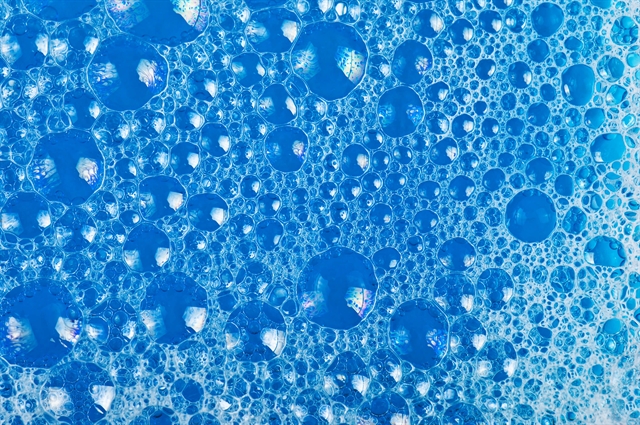The Role of Defoamers in Enhancing Product Top Quality and Performance
Defoamers offer as vital ingredients that reduce this problem, making certain smoother production workflows while boosting the practical and visual attributes of the last products. The option of the ideal defoamer can be important to achieving optimum outcomes, increasing crucial concerns regarding solution compatibility and performance metrics that merit additional expedition.
Comprehending Defoamers
Comprehending the function of defoamers is important for maintaining item high quality throughout different industries. Defoamers are chemical ingredients created to stop the formation and minimize of foam in liquid systems, which can negatively affect processes such as blending, loading, and surface area tension. Foaming can bring about ineffectiveness, item issues, and compromised visual appeal, making defoamers a vital component in manufacturing procedures.
In industrial applications, defoamers help to enhance product consistency and stability. For instance, in the paint and coverings market, foam can disrupt the application procedure and the last finish. In food and drink production, excessive foam can impede bottling and product packaging performance. The efficient usage of defoamers not only makes certain smoother production processes yet also contributes to superior item performance.
In addition, the option and formulation of a defoamer should line up with details application demands, such as compatibility with various other components, effectiveness under differing temperature and pH conditions, and potential regulative restraints. Eventually, comprehending defoamers' functions and their importance in numerous formulas is vital for maximizing production and making sure the finest end products.
Sorts Of Defoamers
Defoamers can be categorized right into several types based on their composition and mechanism of action. The main types include silicone-based, non-silicone organic, and not natural defoamers.
Silicone-based defoamers are amongst the most reliable, mostly due to their capacity to spread quickly on the liquid surface and interrupt foam development. Their one-of-a-kind chemical structure enables premium security, making them ideal for high-temperature applications and environments with varying pH levels.
Non-silicone organic defoamers, often made up of natural oils or fats, are valued for their biodegradability and reduced toxicity. These are generally made use of in food and beverage applications where safety and security and ecological influence are paramount.
Inorganic defoamers, which consist of compounds like talc or calcium carbonate, act by boosting the density of the liquid, therefore minimizing foam stability. They are typically used in commercial processes where compatibility with various other products is not a worry.
Each kind of defoamer has distinctive benefits and limitations, permitting tailored solutions depending on the specific frothing issues run into in various applications. Recognizing these differences is essential for maximizing efficiency and attaining wanted product quality.
Applications Across Industries
Many markets utilize defoamers to improve product top quality and functional efficiency. In the food and beverage field, defoamers are important in processes such as brewing and milk production to avoid foam development, which can bring about inefficiencies and product incongruity. By managing foam, makers can make sure far better yield and a more consistent product.
In the pharmaceutical market, defoamers play a vital function in the solution of liquid drugs, where extreme foam can hamper blending and accurate dosing. Their use helps maintain the integrity of the solutions and helps with smoother production processes.
The paint and finishings market likewise depends on defoamers to boost the performance of products throughout application. By minimizing foam, these additives make certain a smoother finish and enhance the visual top qualities of the end product.

Benefits of Using Defoamers
While the application of defoamers varies throughout industries, their benefits regularly enhance product top quality and process efficiency. One considerable benefit is the decrease of foam development throughout manufacturing processes, which can or else lead to manufacturing delays and disparities in item high quality. By lessening foam, defoamers allow a smoother flow of products, promoting a lot more effective operations and lowering the probability of devices malfunctions.
In addition, using defoamers can improve the look and structure of final items. In markets such as layers, paints, and food handling, excessive foam can endanger the visual aesthetic appeals and overall quality, while the ideal defoamer application makes certain a consistent finish and preferable qualities. Defoamers can add to cost financial savings by lowering waste during manufacturing and optimizing the usage of raw materials.

Picking the Right Defoamer
Choosing the best defoamer is important for enhancing production processes and ensuring item top quality. The selection of defoamer affects not only the effectiveness of foam control but additionally the total performance qualities of the end product. Variables to take into consideration consist of the kind of application, the chemistry of the formulation, and the ecological problems under which the product will be made use of.
Various markets may require details defoamer kinds, such as silicone-based, natural, or polymeric defoamers. Recognizing the compatibility of the defoamer with the main ingredients is important to avoid adverse responses that might compromise item honesty. Furthermore, the defoamer's effectiveness Visit Your URL in numerous Find Out More temperature levels and pH levels must be evaluated to make certain constant performance.
Testing the defoamer in small applications can offer valuable understandings right into its performance and viability. Factor to consider of regulative conformity, specifically in food, pharmaceuticals, and cosmetics, is critical in selecting a defoamer. Inevitably, a detailed evaluation of these variables will bring about the selection of a defoamer that not just regulates foam efficiently but likewise boosts the quality and efficiency of the final item.
Verdict

In conclusion, defoamers are vital ingredients that significantly improve item quality and performance throughout various industries. By properly decreasing foam formation, these representatives not just boost functional performance yet additionally add to the visual and useful honesty of items. The critical option and application of defoamers bring about set you back financial savings, maximized source usage, and raised consumer contentment. On the whole, the importance of defoamers in commercial procedures can not be overemphasized, as they play an essential duty in accomplishing high-quality and consistent end results.
Lathering can lead to inefficiencies, item flaws, and compromised visual charm, making defoamers a vital component in making operations.

Comments on “The Role of Defoamers in the Chemical and Food Processing Industries”